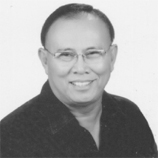
HERE is the continuation of the Facebook post of a friend in the military Col. Ezra L. Balagtey while he was on study status and we would want to be taken up in this column hoping that whatever lesson it teaches us, gives us a new perspective of what we are and why we are now as Filipinos.
“As the world enters the 21st century, Asian nations, particularly those that belong to the Association of South East Asian Nations or ASEAN, started to rise and caught the imagination of everyone even as Western nations remain in denial.
Kishore Mabhubani persuasively argued in his “How the West Lost It” that ‘The era of Western colonization is coming to an end,’ he explained. ‘It is not inevitable that the past two centuries of Western domination of world history will be replaced by two centuries of Asian prominence.
It is even inevitable that the Asian share of global Gross Domestic Product (GDP) will surpass that of the West’s. Winston Churchill, the famous British Prime Minister said, that democracy is the worst political system in the world. But the scholars agreed on one thing, the Asian brand of democracy, as Singaporean Prime Minister Lee Kwan Yew put it, paves the way for the Asian (economic) Miracle which leads to, as Samuel Huntington, a Harvard University professor, suggests, the time of Asianization. With this, the rest of the world has revisited their own narrative since both the history of today and rules of tomorrow are written by the current dominators – and for now Asia is gaining grounds.
However, today there are still many attempts to whitewash the Filipinoness among our youth. As National Artist for Literature Awardee Francisco Sionel Jose expresses ‘ the military is the only institution that holds the fabric of our present day society.’ Firstly, we have to see the history of the Philippines at a higher altitude, then deconstruct its narrative written in Western formulation.’
Three years ago, the Singapore government curated the artwork of Juan Luna to send a message that once an Asian rose from the darkness we sank into – and even beat our colonizers. Sadly, the Filipinos have never realized the importance of this story, the Singaporeans even published a book entitled ‘Revolutionary Spirit: Jose Rizal in South East Asia’ to rewrite the error on Rizal’s life – as a reformist – which a scholar on Indonesia, Malaysia and India strongly suggest that Rizal was the founder of a secret society in Borneo known as RDLM which stands for Redensyon de los Malayos (to liberate the Malay Race).
This project was based on a haunting insight from a national hero Jose Rizal: In order to know the destiny of the people. It is necessary to open the book of their past. Rizal added: The Filipinos forgot their songs, writings, poetry, and laws in order to learn by heart other doctrines that they do not understand.
This is the saddest truth – we have lost our sense of somebodyness, though it is not too late to fortify our battlefront on raising national consciousness through retracing and revisiting the past towards the real meaning of the hero’s journey. Still, this would be a difficult journey. Yet, such a move will set a momentum for the next generation to find their path. As George Santayana puts it ‘Those who don’t study history are doomed to repeat it.’ If amnesia is the act of forgetting, amnesia is the act of unforgetting and remembering.
Today governments in Asia, including the Philippines, are strongly working for the people to remember the legacy of our heroes. Dr. Khanna, however, asks “What does history look like from an Asian point of view?
In 1890, when Rizal wrote ‘The Filipino A Century Hence’, the young Filipinos were inspired to find their voices speak for the voiceless. And one of them was a young law student of the University of Santo Tomas named Emilio Jacinto.
Jacinto initiated a newspaper ‘Kalayaan’ followed by his short story- Pahayag – on which he created a fictional character of a lady that shines in the darkness and challenges a wandering boy to fight for her if he wants her to stay with him.
This was the birth of the word KaLAYAAN which is less synonymous with freedom but more of enlightenment inspired by the renaissance and reformation that were happening in Europe at that time as espoused in Les Miserables. Jacinto who later became Centro Heneralisimo (General of Central Luzon) was considered to be the brains of the revolution but in reality was more of a soul than brain. Leon Ma. Guerrero, an ambassador of the Philippines to Spain and author of The First Filipino, said:
The pure and dedicated Jacinto was Rizal’s true son. Perhaps Polavieja (Governor General in the Philippines) have the wrong man killed. Unfortunately, Filipino scholars have magnified more of a Bonifacio as a symbol of Filipino forces against Spain and Jacinto had been taken for granted.
In 1897, when Jacinto was supposed to finish his Law, abandoned his career and joined the revolutionary forces. He was in charge of the Laguna resistance and there made an impression on the Katipuneros. He then wrote the Kartilya ng Katipunan where he made a comparison saying, The life that is not consecrated to a lofty and reasonable purpose is like a tree without a shade, if not a poisonous weed.
Jacinto also created the dictum that says: There are new ways of seeing things, as there are new ways of retelling stories. That dictum of Jacinto was the voice of Rizal who said once that it is a useless life that is not consecrated to a great ideal.
On April 16, 1897 at age 24, Jacinto fought a good fight against the Spanish forces despite having malaria. He died in that battle in Magdalena, Laguna. His death was a loss for some but ignited a wildfire for many.
His life inspired the many who bravely fought the American and later the Japanese invaders. Yes, those who got their courage and confidence to fight the colonizers; they who rebuild the broken pieces of the past and hopefully craft their own story that will be the history of the future.
May our generation see our future by standing on those who have gone before us.”
**************************
Our profuse thanks to a good yet still personally unmet friend P/BGen. Michael John Dubria for remembering us during the Holiday Season. Thank you so much Sir. May you be back in Davao soon! Our thanks also to the others who might have thought about us.

